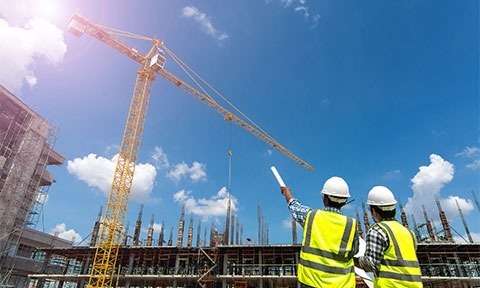Water Testing: Inductively Coupled Plasma (ICP) & Ion Chromatograph (IC) Methods
- Course provides an introduction to produced water analysis and characterization.
- Chemical analyses of waters useful in oil production problems.
- Course objectives include sample preparation and result interpretation.
- Delegates gain knowledge, skills, and competencies in water analysis.
- Production and laboratory technicians can attend the course.
Overview
The Water Testing Training course aims to provide an introduction to produced water analysis and characterization in the oil and gas industry. It covers the importance of understanding and predicting aspects, behavior, and problems induced by produced-water flow. The course objectives include knowledge and skills in sample preparation, analysis, result interpretation, maintenance, and troubleshooting. The course is intended for production and laboratory technicians, with instruction through tutored sessions, group discussions, and industrial case studies. Delivery methods include presentations, calculations, and demonstrations over a 3-day schedule.
Who should attend
Production and Laboratory Technicians
Course Content
Course Outline & Aims:
Extraction of oil and gas from underground reservoirs often is accompanied by water or brine, which is referred to as produced water. As reservoirs mature, especially if secondary or tertiary recovery methods are used, the quantity of water climbs and often exceeds the volume of the hydrocarbons before the reservoir is exhausted. The cost of producing, handling, and disposing of the produced water often defines the economic lifetime of a field and the actual hydrocarbon reserves; therefore, understanding and predicting the aspects, behaviour, and problems induced by the produced-water flow is important. This course provides an introduction to produced water analysis and characterization.
The amount of water produced with oil often increases as the amount of oil produced decreases and there is a tendency for some petroleum-associated waters to become more dilute as the oil reservoir is produced. Similarly, the composition of petroleum-associated water varies with the position within the geologic structure from which it is obtained. Consequently the chemical analyses of waters produced with oil are useful in oil production problems, such as identifying the source of intrusive water, planning water-flood and salt-water disposal projects, and treating to prevent corrosion problems in primary and secondary recovery.
Subsurface waters associated with petroleum are subjected to forces that promote mixing and homogeneity but localised conditions within an aquifer are commonly such that a given subsurface body of water may not be of uniform composition. To develop a comprehensive picture of the composition characteristics of the total water mass, it is generally necessary to obtain and analyse many samples since the value of a sample is directly proportional to the facts known about its source.
Course Objectives:
In general, the concentrations of the constituents in various natural solids of reservoir rocks must be considered along with the amounts that are found in associated oilfield waters. Some possible chemical reactions between host rock and reservoir water may deplete or enrich the concentration of the constituents in oilfield waters.
An important factor is the solubility of a constituent and the ionic potential, determined by dividing the ionic radius by the valence, influences the solubility of elements. Elements commonly found in oilfield waters have the following ionic potentials: sodium, 0.95; calcium, 0.50; magnesium, 0.33; chlorine, 1.81; bromine, 1.95; and iodine, 2.16. The ionic potential is of interest because elements with low ionic potentials are the most likely to remain in true solution.
Chromatographic techniques were originally developed for the determination of sugars and phenols in sea waters and in sediments but by using an ion chromatograph (IC) coupled directly to an inductively coupled plasma (ICP) system, water samples have been successfully analysed for dissolved trace metals. Direct determination by ICP methods is generally not possible since detection limits of instrument are too high in the given water matrix. However, the coupling of the IC to the ICP system lowers detection limits sufficiently to allow analysis in two ways. Firstly, the sample is pre-concentrated and secondly much of the background emission caused by the water matrix is removed prior to analysis thus allowing samples from the entire salinity gradient to be accurately measured against an aqueous standard calibration line.
The objectives of the course are to provide delegates with the appropriate knowledge, skills and competencies to apply the above methods including: sample preparation; sample analysis; result interpretation and validation; maintenance; and troubleshooting.
Intended for:
The nature of the course is such that production and laboratory technicians can be accommodated.
Methods of Instruction:
Course participants will be required to apply knowledge gained during tutored sessions into group discussions and syndicate sessions, and will identify and define appropriate strategies and their application to industrial case studies.
Delivery Methods:
Course delivery will comprise a combination of short power point presentations with flip chart calculations and demonstrations. Delegate handouts will include notes on technical theory, together with photographs and diagrams of specific equipment and processes.
Programme Schedule:
Day 1: An Introduction to Produced Water Characteristics
Session 1 – Produced water properties
Session 2 – Produced water behaviour
Session 3 – Water characterisation
Day 2: Equipment & Processes
Session 4 – Sampling and preparation
Session 5 – Inductively Coupled Plasma (ICP) & Ion Chromatograph (IC) Methods
Session 6 – Maintenance & Troubleshooting
Day 3: Analysis & Interpretation
Session 7 – Results Analysis
Session 8 – Interpretation & Validation
Session 9 – Case Study
Course Duration: 3 Days
Water Testing Training Aberdeen, Glasgow, Edinburgh, Dunfermline, Inverness and other sites throughout the UK including onsite closed company courses are available.
Water Testing Training Qatar, Abu Dhabi, Dubai, India, Ghana and Nigeria is also available.



